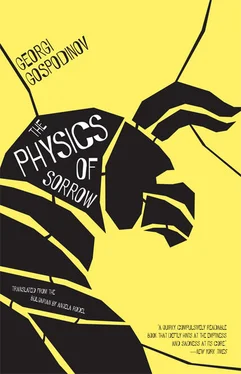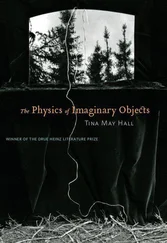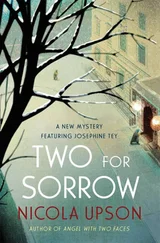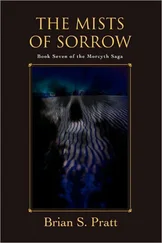LABYRINTH AND CHOICE
The labyrinth is someone’s fossilized hesitation.
The most oppressive thing about the labyrinth is that you are constantly being forced to choose. It isn’t the lack of an exit, but the abundance of “exits” that is so disorienting. Of course, the city is the most obvious labyrinth. Barthes points to Paris as a model: “the labyrinths of the center and the outskirts built by Haussmann.”
I’ve been happily lost in that city, but here I’ll add just one disorienting afternoon. The time when I stood between two streets, wondering which one to go down. Both of them would have led me to the place I was looking for. Incidentally, there was nothing particularly unusual about the streets in and of themselves. The problem was, as always, no matter which one I chose, I would lose the other one. I could only have been satisfied in that quantum physics experiment that shows how a particle also acts like a wave, passing through two openings at once. The minutes were flowing past, and I was standing there, shifting my weight from one foot to the other. I must have looked terribly lost, since an elderly woman stopped and asked me if I needed help.
What did I do? I headed down one of them, the street to the right, but I was thinking about the other one the whole time. And with every step, I kept repeating to myself that I had made the wrong choice. I hadn’t gone even a third of the way before I stopped decisively (oh, that decisive gesture of indecisiveness) and turned down an alley toward the other street. Of course, hesitation seized me with the first couple steps and again after a few meters, I practically ran down the next alley to the first street. And then again, seized by hesitation — back to the other one, then back to the first. To this day I don’t know whether with that zigzag I gained both streets or lost them both. In the end, completely exhausted, like a marathon runner in a labyrinth, my heart pounding as if to burst, I sank down onto a bench.
CHAMOMILE HARVESTERS
I never travel alone. It’s only that my companions are not visible to the naked eye. I’m like a human trafficker, sneaking whole columns of people across the border. Some of them are no longer alive. Others, on the contrary, are far too alive and curious, touching everything, asking about everything, getting lost, wandering away from the group. The metal detectors at the airport don’t catch them.
In the most unexpected and untimely places around this continent, even in the impersonal territory of the airport, that separate country, unexpected faces crop up. As I’m sitting there sipping my tea in the Munich airport, it is suddenly filled to the brim with Gypsy tinkers, boisterous and brightly colored. The police don’t notice them, nor do their silver bracelets, heavy tin pans, and copper kettles set off the metal detectors. There’s that friend of my grandma’s, too, the old Gypsy woman Rusalia, with her tulip-printed headscarf and an enormous wooden rake, going to harvest chamomile. The tea I’m drinking is chamomile, that’s the key. Chamomile doesn’t grow here at the Munich airport, I want to tell her, but Rusalia doesn’t look at me. Then I realize that I, too, don’t exist for her, just as the police, the metal detectors, and even the whole huge terminal don’t exist. It hasn’t been built yet. In its place stretches an endless field of chamomile.
As a child I was afraid of all those noisy Gypsies. Adults would scare us with them, saying they would whisk away naughty children in their big saddlebags. I wasn’t naughty, but who knows, mistakes happen. But I wasn’t afraid of old Rusalia. She would come into our house, sit down and talk with my grandma the whole afternoon. I would hover around them, listening. Rusalia loved my grandma, because she was the only one who let her into her house and talked to her as an equal. My grandma loved Rusalia, because she had travelled far and wide, and she respected everyone who had seen the world. Every summer, Rusalia would tell stories about the world, and my grandma would listen and spin, the stories becoming part of the fiber being spun from her distaff. Why do you invite them into the house, a neighbor woman would always chide her afterward, you can’t trust those Gypsies, while she’s bamboozling you with tall tales, her people are sneaking around, snatching some chicken or swiping some tomatoes from your garden. Let them swipe away, my grandma would say, they’ve got souls, same as we do, plus we’ve got tomatoes galore this year.
The voice over the loudspeaker announces that my flight is delayed, pulling me back to the Munich airport. There is no trace of the Gypsy Rusalia with her big wooden chamomile rake and her colorful people. My tea is gone, too.
As long as I live, Rusalia will go to harvest chamomile at the Munich airport, her people will clatter their pans behind her, and on those endless afternoons my grandmother will spin and listen to stories about the world.
DESCRIPTION OF A FINNISH FAMILY OF POETS AT LUNCH IN LAHTI
This could be a painting by Vermeer.
A handsome, very elderly Finnish poet, with an elongated face, as old age does to some faces, very blue, already fading eyes (one with a slight tic), has difficulty moving his hands, there’s a constant smile on his face (could that be a tic, too?), a sweet and uneasy smile, as if he were apologizing for his age. The elderly woman next to him is probably his wife — and enormous hat with a brim edged with strawberries, with a bit too much rouge on her cheeks, as elderly ladies are wont to do. She discretely keeps an eye on her husband’s movements, ready to come to the rescue at any moment. For now, he is doing fine on his own despite that tremor in his right hand, which always causes half the contents of his spoon to spill back into the bowl.
Next to her sits their son, also a poet, as he was introduced to us, around 40, thin, lanky, with glasses and teeth jutting forward, not as handsome and refined as the father. It’s strange that sometimes parents are more beautiful than their children, you always expect it to be the opposite. The daughter-in-law, in contrast to the whole family, is plump and dark-haired, most likely a foreigner. And the two charming girls of four and six in their blue suits, torn between table manners and the natural law inside them.
The conversation falters, but this is a picture in which conversation is unnecessary. Fascinated, you watch life itself in its elegant vanquishing of old age. There was love, love gave birth to children, those children have given birth to their own children. There surely have been cataclysms, too, but now here they are together for Sunday brunch, at the table of honor in front of all these writers gathered from around the world who most likely have never read a single line by the great Finnish poet and who surely will not remember his impossible name. To enjoy the respect of people who are seeing you for the first time, even for just one lunch, and to share it with your loved ones. What more could you ask for?
And now the Finnish poet does something that jerks him out of the picture. His trembling hand drops the spoon, it hits the edge of the bowl with a bang, scooping up a bit of asparagus soup as it falls, spilling it on his white shirt, splashing a few mischievous droplets onto the cheek of his astonished wife, and landing with a clatter on the stone floor.
The host rushes to pick up the spoon, as if this were the most important thing, and hits his head on the edge of the table in the process, the four-year-old girl can’t contain herself any longer and bursts out laughing, her mother shushes her, but this only makes matters worse, without a pick-up note the little girl replaces laughter with shrieking, the old poet’s son helplessly turns first toward his mother, then toward the children’s mother, but does not receive any instructions from either one. The wife is trying to clean the stain on the poet’s shirt with a napkin. And the poet himself? He keeps smiling in that innocent, apologetic way, like a little boy who has gotten up to some serious mischief.
Читать дальше












